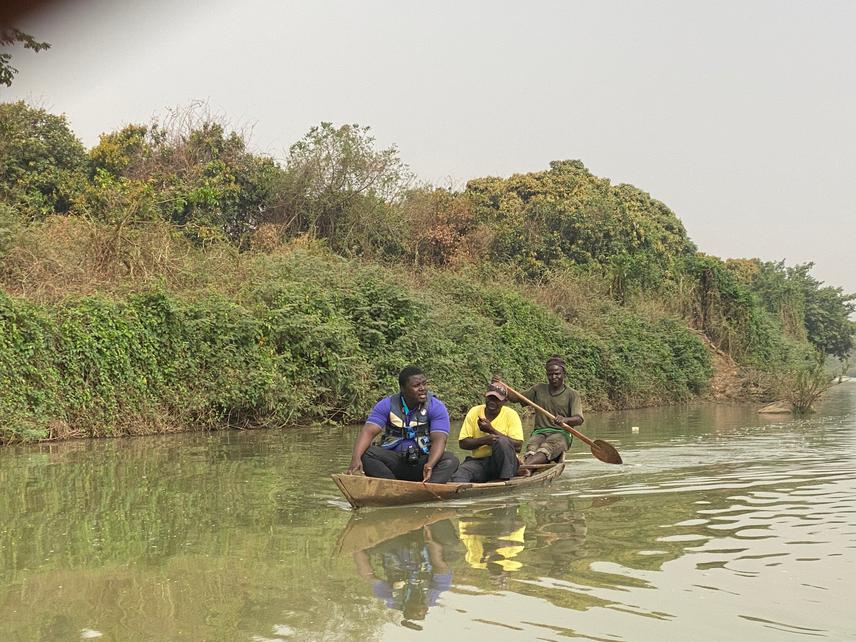Marcellinus Essah
The West African Manatee Trichechus senegalensis is an evolutionary distinct and globally endangered (EDGE) species. The species is a source of myths, legends and rituals. It is also listed on CITES appendix 1, prohibiting their hunting and trade. However, the species is faced with extinction threats emanating from by-catch in fishing nets and hunting for traditional medicine. There is paucity of published information on T. senegalensis, population, distribution and conservation status making conservation management decision on the species difficult. This project aims to demystify the myths, mitigate the threats and make actionable recommendations for the long-term conservation of African manatee in Ghana.

The West African Manatee Trichechus senegalensis is evolutionary distinct and globally endangered (EDGE) species. The species known locally as “Sea cow” is the source of many myths, legends and rituals. It is revered and considered as capricious river goddess popularly known as “Maame Water” in many local river communities in Ghana. This is because, when female manatees rise out of the water for air, their teats resemble a woman's breasts, leading people to believe the animal is a sort of mermaid. While some river communities are afraid to harm or even talk about the species for fear of retribution, other communities trap and kill the species as a source of good omen.
The species is faced with critical extinction threats in most communities. The species are impacted directly from by-catch in fishing nets, hunting and trading as bushmeat. This is against the backdrop that Manatees are listed on CITES appendix 1, prohibiting their trade. West African manatees are also impacted through the cutting of mangroves for farming, timber, smoking, making them vulnerable to climate change impacts.
Also, there is paucity of published information on T. senegalensis, making conservation management decision on the species difficult. Data on the species biology, distribution dynamics, and conservation status are rare. This could be explained in part by manatees’ elusive nature and their preference for turbid, sediment-rich waters which are an obvious obstacle for direct or indirect observations in the wild.
Despite these threats, there is currently there no focal conservation attention on the revered river goddess making its long-term conservation in Ghana uncertain.
This project will highlight the threats and conservation status of the West African manatees. It will further create conservation awareness in local communities and determine the current population estimates and distribution of the species. The project will make conservation recommendation for long-term conservation of the species in Ghana.